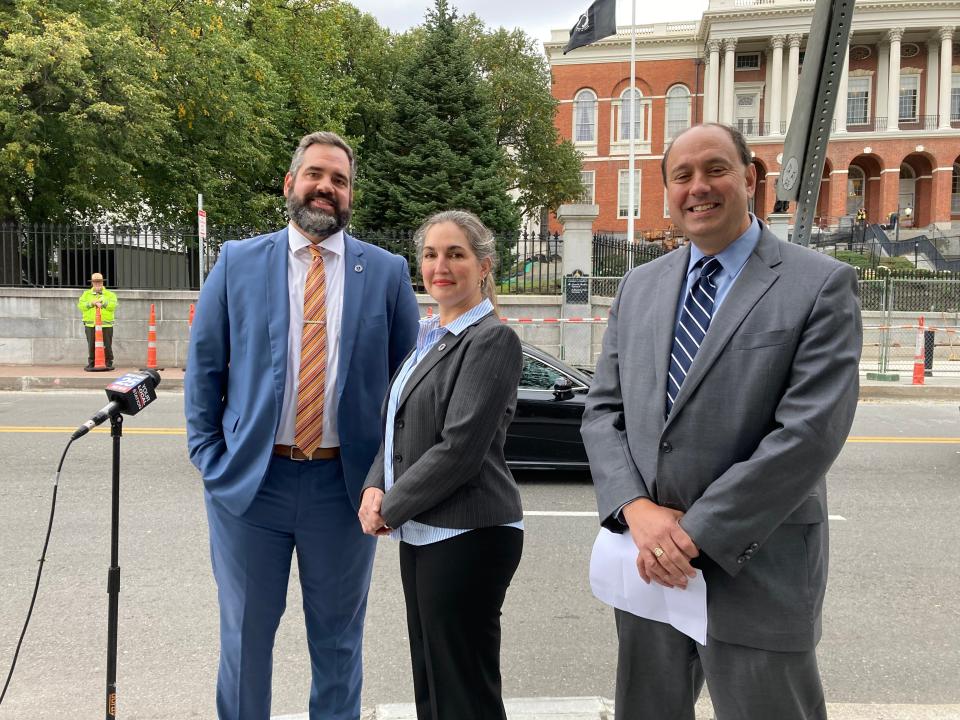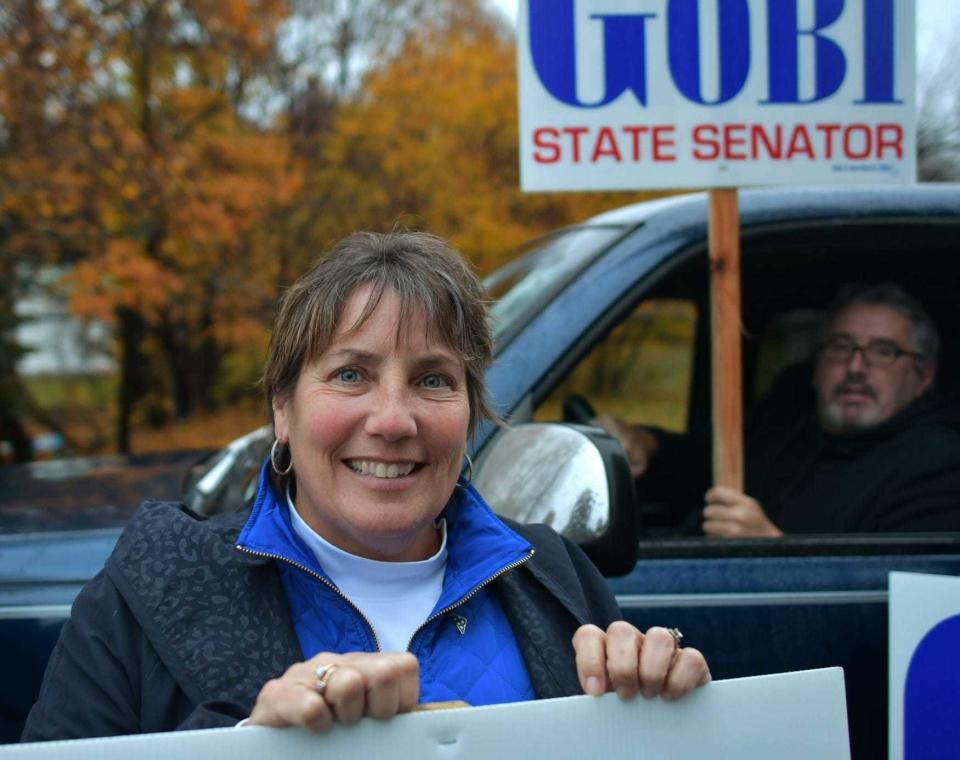Finally! Long-awaited state economic development bill is on Baker's desk
BOSTON — Finally!
With the acceptance of a conference committee report Thursday by the state Senate, the Legislature made a $6.76 billion spending package, which includes both the long-delayed economic development bill, the governor’s closeout budget and some $3 billion in relief for residents who pay state income tax, a reality.
It was not without some pushback.
Sen. Bruce Tarr, R-Gloucester, expressed disappointment that the $1 billion in direct payments and permanent tax relief for low- and middle-income earners included in the original economic development bill was missing.
He wasn’t the only one.
“I have mixed emotions about the economic development bill due to its omission of tax relief while many of our neighbors and businesses are struggling, especially as we approach a winter of unprecedented energy costs,” Sen. Ryan Fattman, R-Sutton, said in a written statement.
“The Legislature, which had promised tax relief in the original inception of this bill, completely removed it from the final version that passed. The promises that were made were not kept.”
Tarr hammered on that point as well, requesting that Michael Rodrigues, D-Westport, chairman of the Senate Ways and Means Committee, sign an IOU to taxpayers. The IOU, which he bandied about in the Senate chamber and promised to frame, would guarantee that the Legislature will take up the subject of meaningful and permanent tax relief in the next session.
“I have reviewed the document, shaken it upside-down one way and shaken it upside-down another way, even tried reading it backwards,” Tarr said of the spending package, as he discussed looking for the missing tax relief package.
The $3 billion of tax relief that is already on its way to those residents who pay income tax was not a new legislative measure. The coming refunds, about $9 to $20 for 20% of the state’s lowest-income earners and up to $36,000 for those in higher income brackets, are being sent out thanks to a 1985 ballot initiative.
Funds for child and health care workers, hospitals, housing and clean energy
The $3.76 billion spending package has set-asides for projects throughout the commonwealth:
$500 million for the state department of Early Education and Care and workforce development
$350 million for hospitals
$304 million for housing production
$250 million for clean energy incentives
$225 million for a rate increase for human service workers
$200 million for COVID-19 response
$195 million for the state’s nursing and rest homes
$80 million for community health centers
$20 million to reduce gun violence
$17.5 million for reproductive health care and family planning
Baker will peruse the bill
The bill is now on Gov. Charlie Baker’s desk.
“We need to read it, talk about it, figure out what’s in it,” Baker said Thursday, shortly after the agreement was reached and the document accepted by the Senate. “I’m glad they were able to come to an agreement.”

Legislators in Central Massachusetts managed to secure funding for special projects in their districts, from $300,000 for Open Table, a food pantry in Maynard that serves the greater MetroWest area, to $250,000 in Spencer for sewer upgrades.
Fattman said he secured funding in the bill for local chambers of commerce, like the Blackstone Valley Chamber, that will help provide grants to local businesses to address some of the economic challenges they face.
Despite political and philosophical differences between Fattman and Sen. Jamie Eldridge, D-Acton, both expressed disappointment in the lack of direct tax relief that had been included in the original economic development package announced in July.
“I’m absolutely disappointed that the Legislature did not opt for more relief for working-class families,” Eldridge said.
Last month Eldridge joined Rep. Michael Connolly, D-Cambridge, and Rep. Jamie Belsito, D-Topsfield, to propose a $6,500 cap on the refund directed to the state’s wealthiest taxpayers, in order to redirect more relief to lower-income residents.
But Eldridge is gratified that Open Table will receive funds to refrigerate its warehouse and better serve residents who are facing food insecurity issues.
“It has become a regional food hub,” Eldridge said.

The wins in his district also include $35 million for the UMass Memorial Health Care system, $300,000 for housing and housing production; and funds to install electric vehicle charging stations. There’s money for a community art organization and for beautifying a favorite park.
“These are all initiatives that improve the quality of life and are appreciated by constituents,” Eldridge said.
The bill included a provision to remove the cap on development at Devens. Dubbed a technicality, the former military installation will be home to a nuclear fission test facility and biomanufacturing facilities.
Other area wins for Sen. Anne Gobi, D-Spencer, working with representatives Susannah M. Whipps, I-Athol, Jon Zlotnik, D-Gardner, and Rep. Kimberly Ferguson, R-Holden:
Templeton: $200,000 for economic development
Holden: $200,000 for economic development, $150,000 for the development of a village overlay district and mixed-use redevelopment of the department of public works building on Main Street
Paxton: $200,000 for economic development, $75,000 for the reevaluation of zoning bylaws
Westminster: $200,000 to revitalize the Village Center, redevelop and make it more pedestrian friendly
Gobi additionally included a provision that allows funding to remediate an electroplating site in Jefferson for redevelopment as commercial space. Funding was also extended for the historic Wood House in Rutland.
Gobi also was able to add an extra $30 million to provide relief to rest homes to mitigate expenses related to the COVID-19 pandemic, including testing and personal protective equipment and other expenses.
This article originally appeared on Telegram & Gazette: Mass. legislators put $6 billion spending package on Baker's desk

